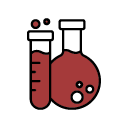
Cola
Ingredients
Alpine spring water, sugar, carbonic acid, colorant E150d, herbal extract, acidifier, phosphoric acid, natural flavor, flavor: caffeine, stabilizer E414, flavor: natural quinine, vitamin C, vitamin B6, vitamin B12, pasteurized.Category
Erfrischungsgetränke
Brand
Alpencola
Sold in

Barcode
9120127630018
Processing
Additives
-
Firming agent, stabilizer, acid regulator; synthetically produced; used in baked goods, cheese, and fruit and vegetable products. Long-term exposure to aluminum can pose health risks, such as neurological disorders.
Not Restricted
-
Used as an acidity regulator and flavor enhancer. Can be irritating to skin, eyes, and mucous membranes at high doses.
Not Restricted
-
A starch derivative used as a thickener and emulsifier in foods. Excessive consumption may lead to digestive disturbances.
Not Restricted
-
Treibgas, das in Lebensmitteln zur Gärung, zur Konservierung und zur Schäumung eingesetzt wird. Es ist ungiftig und kommt in der Natur vor.
Not Restricted
Questionable Ingredients
-
Refined white sugar is associated with health risks such as weight gain, type 2 diabetes, heart disease, and tooth decay. The World Health Organization (WHO) recommends limiting daily sugar intake to less than 10% of total daily calorie intake, which corresponds to about 25 grams of sugar (6 teaspoons) for a physically active adult. A further reduction to 5% (3 teaspoons or 15 grams) may offer additional health benefits. High sugar consumption can lead to overweight, type 2 diabetes, heart disease, and tooth decay. It is advisable to reduce the consumption of added sugars and focus on a balanced diet with natural, unprocessed foods.
-
Caffeine is a stimulant that increases alertness and reduces fatigue. However, high caffeine intake can lead to insomnia, nervousness, rapid heartbeat, and high blood pressure. It may pose risks for pregnant or breastfeeding women and individuals with cardiovascular conditions. Moderate consumption and attention to individual tolerance are recommended.
Additives
-
Firming agent, stabilizer, acid regulator; synthetically produced; used in baked goods, cheese, and fruit and vegetable products. Long-term exposure to aluminum can pose health risks, such as neurological disorders.
Not Restricted
-
Used as an acidity regulator and flavor enhancer. Can be irritating to skin, eyes, and mucous membranes at high doses.
Not Restricted
-
A starch derivative used as a thickener and emulsifier in foods. Excessive consumption may lead to digestive disturbances.
Not Restricted
-
Treibgas, das in Lebensmitteln zur Gärung, zur Konservierung und zur Schäumung eingesetzt wird. Es ist ungiftig und kommt in der Natur vor.
Not Restricted
Questionable Ingredients
-
Sugar
Refined white sugar is associated with health risks such as weight gain, type 2 diabetes, heart disease, and tooth decay. The World Health Organization (WHO) recommends limiting daily sugar intake to less than 10% of total daily calorie intake, which corresponds to about 25 grams of sugar (6 teaspoons) for a physically active adult. A further reduction to 5% (3 teaspoons or 15 grams) may offer additional health benefits. High sugar consumption can lead to overweight, type 2 diabetes, heart disease, and tooth decay. It is advisable to reduce the consumption of added sugars and focus on a balanced diet with natural, unprocessed foods.
-
Caffeine
Caffeine is a stimulant that increases alertness and reduces fatigue. However, high caffeine intake can lead to insomnia, nervousness, rapid heartbeat, and high blood pressure. It may pose risks for pregnant or breastfeeding women and individuals with cardiovascular conditions. Moderate consumption and attention to individual tolerance are recommended.





